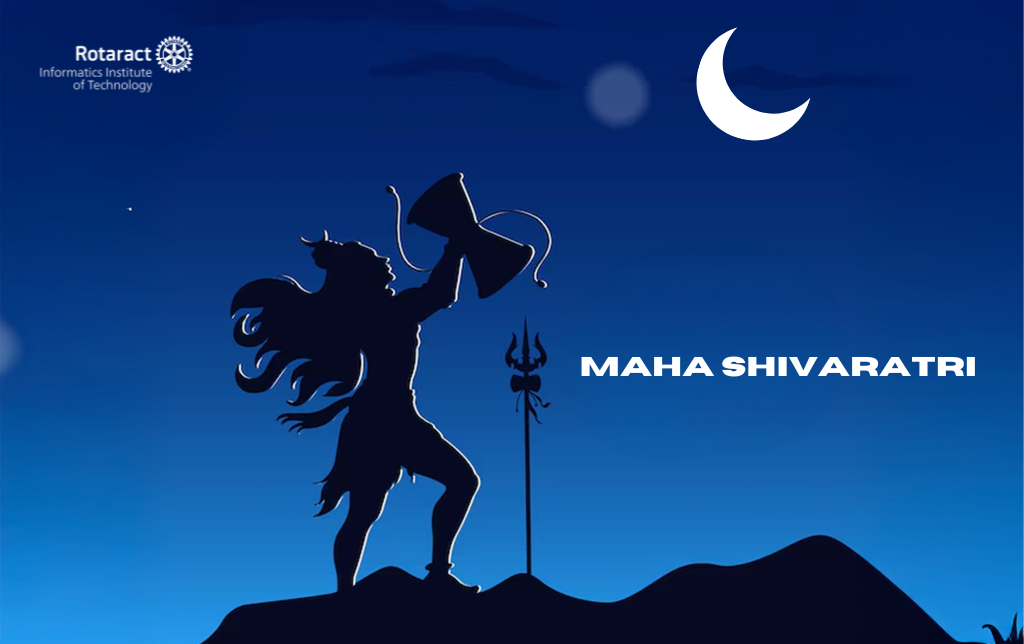
The Spiritual Significance of Maha Shivaratri
Maha Shivaratri, the most significant festival for devotees of Lord Shiva, is observed with great reverence across India and several other parts of the world. This sacred occasion is marked by fasting, meditation, night-long vigils, and elaborate worship rituals. Celebrated on the 14th night of the dark fortnight in the Hindu month of Phalguna or Magha, Maha Shivaratri, meaning "The Great Night of Shiva," symbolizes spiritual awakening and divine consciousness. Unlike other Hindu festivals characterized by feasts and joyous gatherings, Maha Shivaratri is a solemn occasion dedicated to deep introspection, self-discipline, and devotion to Lord Shiva.
The historical and mythological roots of Maha Shivaratri are deeply intertwined with Indian tradition and spiritual beliefs. One of the most prominent legends associated with the festival narrates how Lord Shiva performed the Tandava, the cosmic dance of creation, preservation, and destruction, on this very night to maintain the balance of the universe. Another story highlights the divine marriage of Lord Shiva and Goddess Parvati, symbolizing the harmony of masculine and feminine energies. Some scriptures recount that Maha Shivaratri marks the night when Shiva saved the world by consuming the deadly poison that emerged from the churning of the ocean, holding it in his throat and becoming Neelkanth, the blue-throated one. These myths reinforce the profound significance of Maha Shivaratri as a night of cosmic transformation, renewal, and divine grace.
Devotees prepare for Maha Shivaratri by observing a strict fast, ranging from consuming only fruits and milk to complete abstinence from food and water. This practice is believed to cleanse the body and enhance spiritual focus. A ceremonial bath is taken before visiting Shiva temples, where devotees offer sacred items such as milk, honey, bael leaves, ghee, sugar, and water to the Shiva Lingam, a symbolic representation of Lord Shiva. Throughout the night, the sacred mantra "Om Namah Shivaya" is chanted, and lamps are lit as an offering to dispel darkness and ignorance. The night-long vigil signifies vigilance against negative tendencies and the pursuit of spiritual enlightenment.
Beyond its ritualistic aspects, Maha Shivaratri holds profound philosophical significance. In yogic traditions, it is believed that the planetary alignments on this night are conducive to heightened spiritual awareness, making it the ideal time for meditation and self-realization. Many ascetics and spiritual seekers consider Maha Shivaratri the most auspicious night for deep contemplation, as it is believed that those who remain awake and meditate through the night can attain liberation from worldly illusions and merge with the infinite consciousness. Lord Shiva, revered as Adi Yogi, the first Guru, is not merely seen as a deity but as the ultimate symbol of inner peace, wisdom, and transcendence.
The festival of Maha Shivaratri also carries profound implications related to fertility, renewal, and cosmic order. Many married women observe the fast to seek blessings for harmony in their marriage, while unmarried women pray for a life partner embodying Shiva’s qualities of wisdom, strength, and integrity. In many parts of India, the occasion is celebrated with grand processions, temple festivals, and special pujas. Cities such as Ujjain, considered the divine abode of Lord Shiva, witness massive gatherings at the Mahakaleshwar temple. Devotees also flock to sacred sites such as Kashi Vishwanath in Varanasi, Kedarnath in the Himalayas, and Somnath in Gujarat, where elaborate rituals continue throughout the night.
The observance of Maha Shivaratri is not limited to India but extends to various parts of the world, particularly in countries with significant Hindu populations. In Nepal, Maha Shivaratri is a national holiday, and thousands of devotees throng the Pashupatinath temple to seek blessings. In Mauritius, Trinidad and Tobago, Guyana, and other Indo-Caribbean nations, Hindu communities celebrate the occasion with great devotion, conducting all-night prayers and offering special drinks called jhalls to Lord Shiva. Pilgrims from Mauritius travel to Ganga Talao, a sacred crater lake, to offer prayers and perform rituals in honor of Lord Shiva. These global celebrations reflect the universal reverence for Shiva and the spiritual ideals that Maha Shivaratri represents.
Maha Shivaratri serves as a powerful reminder of the eternal cycle of destruction and renewal, darkness and illumination. It embodies the concept of overcoming ignorance and embracing divine wisdom. For many devotees, it is a time of sacrifice, introspection, and transcendence—a sacred night dedicated to embracing the stillness within and recognizing the boundless potential of the human spirit. By observing Maha Shivaratri, individuals connect with the cosmic energies that Shiva represents, striving for inner peace and enlightenment.
As Maha Shivaratri approaches each year, millions of devotees prepare for a night of spiritual transformation and devotion. Whether through fasting, chanting, or silent meditation, the festival provides an opportunity to align oneself with the divine forces of the universe. The essence of Maha Shivaratri lies not only in religious rituals but also in the pursuit of higher consciousness and self-awareness. By immersing in the spiritual energy of this auspicious night, one can experience profound inner peace, renewed clarity, and a deeper connection with the divine. May the blessings of Lord Shiva bring wisdom, strength, and enlightenment to all who seek his grace on this sacred night of Maha Shivaratri.






